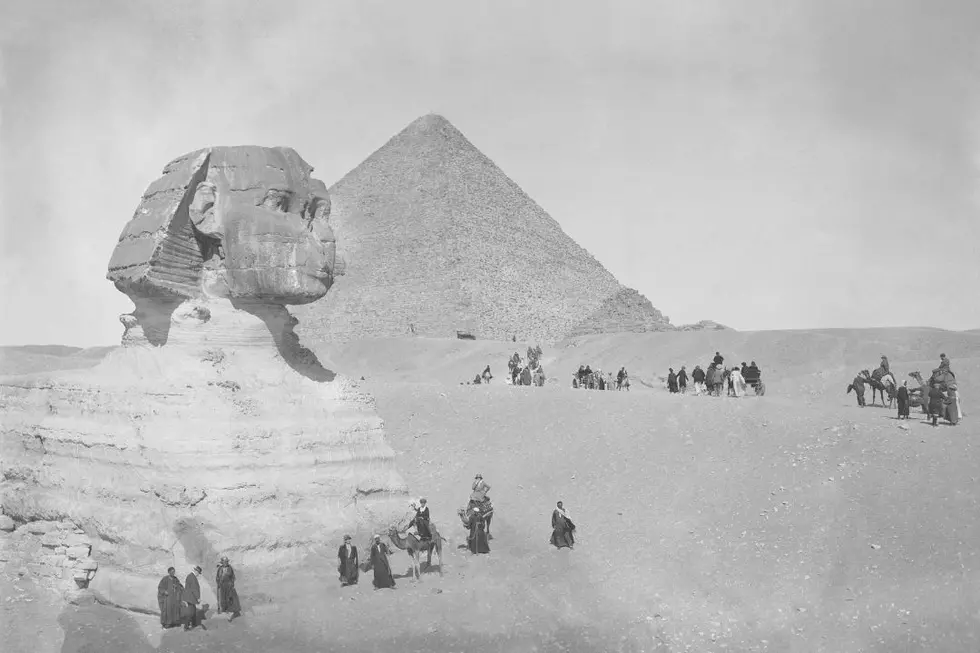
New Egyptian Pyramid Constructed Entirely Out of Nile River Garbage: PHOTO
Although the pyramids of Egypt were built roughly 4,600 years ago, a new pyramid recently rose up in the Egyptian desert. Foregoing traditional limestone bricks, the new structure is composed entirely out of recycled plastic.
The innovative structure was developed by Australian zero-waste company Zero Coin collaboration with wine brand The Hidden Sea. The two companies wanted to create an installation to raise awareness around plastic waste and pollution leading up to the COP27 summit in Egypt.
The trash pyramid stands over 32-feet tall and is reportedly the largest waste structure of its kind ever constructed.
"The pyramid took a total of five days to construct and is made from almost 45,000 pounds of salvaged plastic pulled from the Nile River. The collection process took almost a month," Mike Smith, CEO of Zero Co, told Newsweek.
Smith slept on top of the pyramid for three nights leading up to the climate summit. "A waste pyramid is not exactly the most ideal place for 'accommodations.' The structure is sitting in the hot Egyptian desert sun, so it has a bad smell and is covered with flies, due to all of the waste," he shared.
Smith added he was "concerned that the pyramid might collapse" the first night, but the morning view was worth it: "The view from the top of the pyramid is absolutely incredible, especially in the mornings at sunrise. The desert is completely silent and the sunrises over the sand dunes can't be beat."
The plastic waste came from clean-up efforts by VeryNile, an organization dedicated to removing trash from the Nile River.
The plastic waste structure is part of a new initiative from 100YR Cleanup, whose goal is to raise funds for large-scale cleanup efforts. To date, over $250,000 has been reportedly raised for the project, according to reports.
"The response to the pyramid structure has been incredible. I think there is this fantastic element of surprise because nothing like this has ever been done before," Smith shared.
Co-founder of The Hidden Sea, Justin Moran, said he hopes the pyramid will leave a lasting impression and inspire climate change initiatives around the world.
"If companies and consumers get behind us, the collective impact could be epic with a genuine legacy. Egypt is on the global stage right now as the location of COP27. If we cut through even a fraction of the noise and put eyes on the problem, we've really done a good job," he told Newsweek.
After the conference, the pyramid will be deconstructed and all the plastic waste will be sent to local recycling centers.
Pop Songs With Political and Social Messages
More From Mix 103.9










